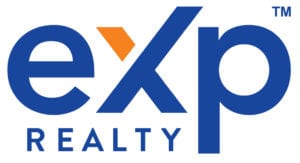I recently earned a designation through the National Association of Realtors to be a Short Sales & Foreclosures Resource (SFR) agent. So what is a short sale and how does it differ from a foreclosure?
[Note: the following is not to be construed as legal advice]
Short Sale
A short sale is when a mortgage lender agrees to accept a mortgage payoff amount less than what is owed, in order to facilitate a sale of the property by a financially-distressed owner. If there are other loan servicers, such as a Home Equity Loan, a 2nd mortgage, a line of credit, or even a default on Homeowner’s Association dues, all parties must provide permission for a short sale to take place.
The short sale process varies by state and even by lender.
Foreclosure
In a foreclosure, the lender actually possesses the property and then tries to sell it for enough to recover its costs. These are called REO properties–meaning Real Estate Owned.
The process of either a short sale or a foreclosure is detailed, lengthy, and can be heart-wrenching. A Realtor knowledgeable in the short sale/foreclosure process can guide a homeowner through their options.

Assess your Situation
- Assess your situation by gathering as much information as possible: mortgage loan statements, any home equity or personal loan statements, most recent property tax records, home association dues, etc. Verify the total amount due with a title company to be sure all penalties are accounted for. Check to see if any legal proceedings have been filed by a lien holder.
- Obtain a Comparative Market Analysis (CMA) or a Broker Price Opinion (BPO) using the most current comparable sales in your market. Include all costs of sale, such as commissions, closing costs, any interest and penalties on loans or taxes in default. In your best judgment, will there be positive proceeds or do you owe more than the property is currently worth after all selling costs?
- Find out whether the loan(s) are “Recourse” or Non-recourse”. In a recourse loan, the borrower retains personal liability for any deficiency after a short sale or foreclosure. In a non-recourse loan the lender is limited to whatever funds are available from the sale of the property itself and cannot force the borrower to repay any deficiency.
- If the seller owes more than the property is now worth, it is important to obtain separate legal, credit, and tax advice.

Options for a Distressed Homeowner
It is advisable to be upfront with your mortgage lender to discuss options to keep your property.
- Refinance: lender allows for changed terms of the loan
- Forbearance: lender allows for temporarily reduced or paused payments (loan modification)
- Rent your home
- Family or friend loan
- “Making Home Affordable” programs: www.makinghomeaffordable.gov
- Sell the property and bring cash to closing using other assets or convert remaining debt to a personal loan
However, after exhausting those options, a short sale or foreclosure may be necessary.
- Deed in Lieu – offering the lender the deed in exchange for cancellation of the note
- Short sale
- Foreclosure

Realtor Package
Every lender has a different requirement for a short sale. A knowledgeable realtor will assemble the Short Sale Package that includes verification of hardship, a hardship letter by the homeowners, a plethora of financial documents, a market analysis and a marketing plan. Once there is an Offer-to-Purchase, the lender reviews the Offer, any addenda, and makes a determination whether to accept the Offer. The full process takes months. It takes a patient potential buyer to go through the short sale process.

If you find yourself in an imminent position of being “underwater,” it is advisable for you to first contact your lender, then a Realtor who understands the short sale process.
Gina Newell, eXp Realty; 608-345-9396

